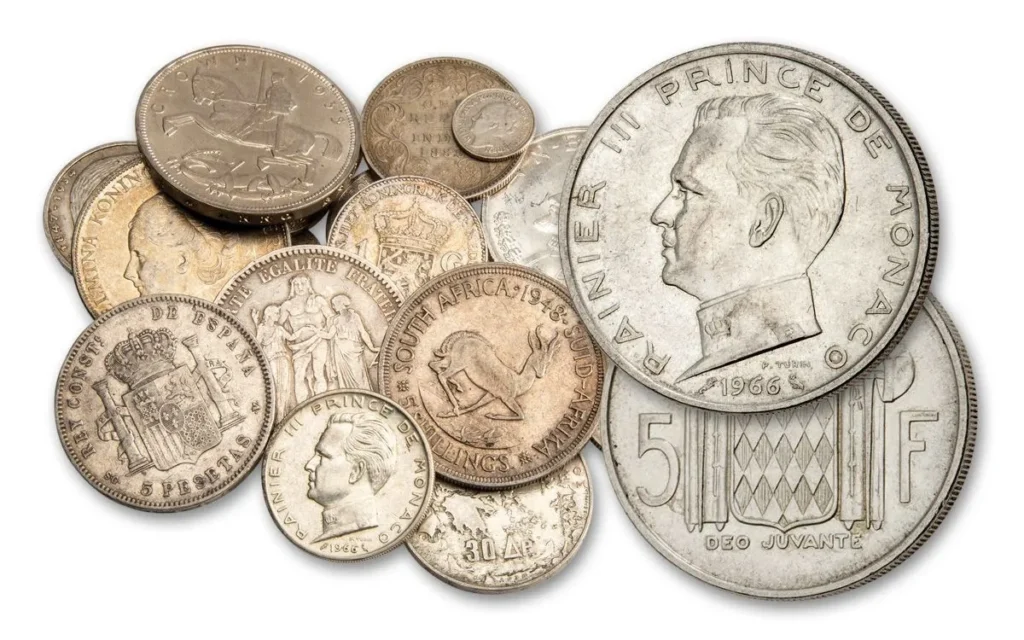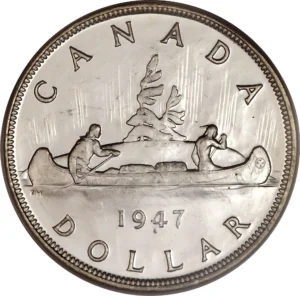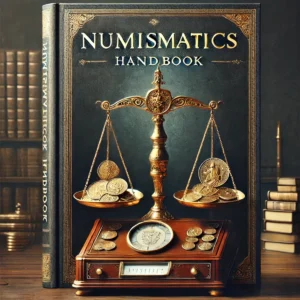Foreign Coins Found in the US: Key Dates, Origins & Pricing
Uncover the fascinating stories behind foreign coins discovered in U.S. circulation, collections, and silver lots — from Spanish colonial reales and Canadian silver to obscure wartime tokens and U.S.-Philippine hybrids.

📘 Download the full guide: Numismatics Handbook — A +135-page expert resource on U.S. coin collecting.
Why Foreign Coins in the U.S. Matter
Foreign coins have a surprisingly deep connection to American monetary history. Before the Coinage Act of 1857, foreign coins like Spanish reales, Mexican pesos, and British tokens were legal tender and commonly used alongside U.S. coins.
Even today, foreign coins appear in junk silver lots, estate sales, and inherited collections — and many are worth more than you think.

Collectors love these coins for:
🪙 Colonial & Early U.S. Use — Spanish and Mexican coins once circulated legally
📦 Unusual Finds — Foreign silver coins occasionally still found in coin jars and rolls
🔎 Wartime Relics — German, Japanese, and Allied occupation coins from WWII
🔥 Global Designs — Monarchs, emblems, languages, and denominations from around the world
💰 Bullion Value — Silver content in Canadian, Mexican, and European coins pre-1970
Whether you’re a stacker or a historian, foreign coins in U.S. circulation offer hidden treasure and rich global stories.
Most Common Foreign Coins Found in the U.S.
| Country | Coin Type | Metal | Notes |
|---|---|---|---|
| 🇪🇸 Spain / Mexico | 1, 2, 4, 8 Reales | Silver | Legal tender in the U.S. until 1857. Still found in early coin hoards. |
| 🇨🇦 Canada | Cents, Nickels, Quarters | Mixed metals | Still common in Northern U.S. change. Silver dimes/quarters before 1967. |
| 🇬🇧 United Kingdom | Pennies, Shillings | Copper & Silver | Victorian-era coins pop up in East Coast junk lots. |
| 🇩🇪 Germany (WWII) | 5, 10 Reichspfennig | Zinc, Aluminum | Wartime emergency coins; popular relics among history collectors. |
| 🇵🇭 Philippines (U.S.) | Pesos, Centavos | Silver & Copper | Minted under U.S. administration 1903–1945. Legal tender in both nations. |
| 🇯🇲 Caribbean Nations | 1¢, 5¢, 25¢ | Nickel, Steel | British Commonwealth coins found in the South and Gulf Coast regions. |
| 🇲🇽 Mexico | 1 Peso, 5 Peso | .720 Silver | Older Mexican pesos still found in U.S. silver lots. |

✅ GoldSilverStacks Tip: Pre-1968 Canadian and Mexican coins often contain .720–.800 silver — great for stacking and trading.
Key Features of Foreign Coins in U.S. Circulation
✨ Design Variety
Foreign coins feature everything from monarch portraits and revolutionary symbols to animals and architectural wonders.
🏛️ Historic Legality
Foreign coins circulated as legal tender in the U.S. until 1857 — especially Spanish 8 Reales and early Mexican coinage.
💰 Silver Bullion Content
Many world coins minted before 1967 (Canada) or 1968 (Mexico) have real melt value — ideal for silver stackers.
💎 Unique Numismatic Niches
Look out for overstrikes, U.S. counterstamps, emergency war coinage, and U.S.-issued Philippine coins.
✅ GoldSilverStacks Tip: When identifying foreign coins, check for silver, rare mintmarks, and monarch changes (e.g., Victoria to George V) — all can affect value.
Valuable Foreign Coins Found in the U.S.
| Coin | Value Estimate | Why It’s Valuable |
|---|---|---|
| 🇪🇸 8 Reales (Mexico City) | $80–$300+ | Spanish “dollar” — circulated widely in early U.S. history. |
| 🇨🇦 1967 Canadian Dollar (Silver) | $20–$35 | Centennial issue — contains .800 silver. |
| 🇵🇭 1903 U.S.-Philippine Peso | $30–$150+ | Silver coin minted under U.S. rule — growing in demand. |
| 🇲🇽 1957 Mexican Peso (Silver) | $18–$30 | Contains 0.720 oz of silver — a favorite among bullion buyers. |
| 🇩🇪 WWII Reichspfennig | $5–$25 | WWII occupation relics — collected by military historians. |
| 🇯🇲 1970s Jamaican 1¢ | $1–$5 | Obsolete Commonwealth coin — collectible in top grades. |

How to Identify Valuable Foreign Coins
Step 1: Check the Metal
Silver and copper-nickel coins from pre-1970s are often worth more than face value.
Step 2: Translate Inscriptions
Use Google Lens or sites like Numista to determine country, denomination, and mintage.
Step 3: Assess Age, Mint, and Condition
Older coins from colonial regimes or those with unusual shapes (scalloped, square) may bring a premium.
✅ Certification through NGC World or PCGS World Coins increases resale value significantly.
Where to Sell Foreign Coins
- eBay – Excellent for bulk lots and scrap silver coins
- GreatCollections (World Auctions) – For high-grade or rare specimens
- Coin Shows – Dealers often purchase bulk world coins and unusual tokens
- Local Bullion Buyers – Accept Canadian and Mexican silver coins by melt weight
How to Store Foreign Coins
🏛️ Use Archival Materials
2×2 flips, coin albums, or capsules protect surfaces.
🌡️ Store in Stable Conditions
Cool, dry storage is key — humidity can corrode foreign alloys quickly.
🧤 Use Gloves or Hold Edges
Especially for silver, zinc, or copper pieces.
🧽 Avoid Cleaning
Even on non-U.S. coins, cleaning reduces numismatic value.
✅ Bonus: Well-toned or rainbow-patinated silver coins can sell for 20–50% more.
Foreign Coins Found in the U.S Frequently Asked Questions
What foreign coins were legal tender in early America?
Before 1857, coins like the Spanish 8 Reales and Mexican silver pesos were officially accepted U.S. currency, especially in the colonies and early frontier economy.
Can I still find foreign coins in U.S. change?
Yes — Canadian coins, Caribbean cents, and occasionally older Mexican pesos still show up in pocket change, especially in border states and southern regions.
Which foreign coins found in the U.S. are silver?
Look for Canadian dimes, quarters, and dollars before 1967, Mexican pesos before 1968, and Philippine coins minted under U.S. authority (1903–1945) — many contain .720–.800 silver.
Are foreign coins with monarchs collectible?
Yes. Coins featuring Queen Victoria, George V, Wilhelm II, and Franz Joseph are especially desirable, with premiums for silver content or historical significance.
What are U.S.-Philippine coins?
These were coins struck by the U.S. Mint for the Philippines when it was a U.S. territory. They include silver pesos and centavos, highly sought after by collectors today.
How do I identify a foreign coin I found?
Use tools like Google Lens, Numista.com, or NGC’s World Coin Identifier. Match the language, symbols, and date to determine its country, value, and rarity.
What’s the value of old Spanish 8 Reales?
Depending on condition and mint, a Spanish or Mexican 8 Reales can be worth $80 to $300+. These coins often served as the model for early U.S. dollars.
Are wartime foreign coins valuable?
Yes — coins like WWII German Reichspfennigs, Allied military currency, and Japanese occupation notes are highly collectible among military and history enthusiasts.
Should I clean foreign coins before selling?
No. Cleaning reduces value, even for foreign coins. Collectors and dealers prefer coins with natural patina and original surfaces.
Where can I sell valuable foreign coins?
List common coins on eBay or visit coin shows. For high-grade pieces, use Heritage Auctions, GreatCollections (World Division), or trusted dealers in world coins.
